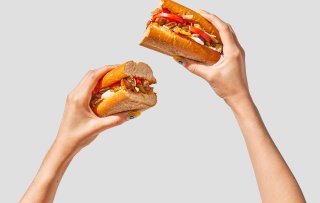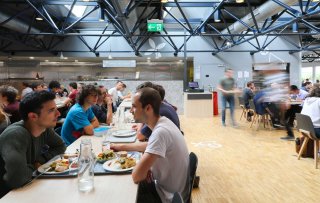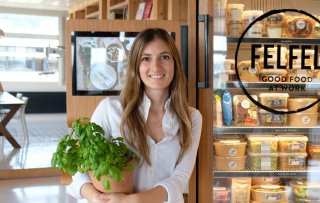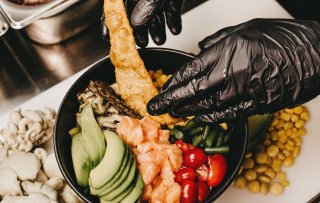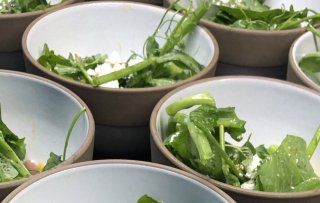In 2021 ReLondon conducted research that mapped London's consumption-based food emissions, aiming to reveal the city’s food-related carbon and waste hotspots. “Reducing household food waste and switching to a more plant-based diet turned out to be the key areas to improve,” says Ali Moore, Head of Communications and Behaviour Change at ReLondon. “That’s why this year we launched the Eat Like a Londoner behavior change campaign.”
“As a city, we’re a net importer of food, meaning we consume more than we produce,” Moore explains. “In fact, London imports 99% of all its food. But although we don’t produce food within our city boundaries, we cannot pretend that we don't have any emissions associated with our food.” The study identified the largest potential areas for reducing the city’s food-related consumption-based emissions.
London’s Food Footprint - key facts (2021)
-
Approximately 6,347,000 tons of food are produced to supply London’s food system each year. Of this, 99% of London’s food and beverages are imported from outside the city, with local production and farming accounting for less than 1% of the capital’s food supply.
-
Before it reaches London, 836,000 tons of imported food are lost, representing the second largest volume of food loss and waste across the supply chain.
-
86% of the food consumed in London is eaten at home, which equals about 460 kg per person per year. Food eaten in places like cafés and restaurants makes up the remaining 14%.
-
Londoners’ food consumption-related emissions are equal to 15,483 kt CO2eq each year. This takes into account all lifecycle greenhouse gas emissions from food and beverages consumed by London residents, from the cultivation and processing of food outside London, to transport, manufacturing, wholesale and retail, as well as waste management.
-
Meat makes up approximately 5% of the food consumed by London households by mass, yet it is responsible for 27% of London households’ consumption-based emissions. Vegetables and fruit represent 21% of the food consumed (by mass), yet are responsible for only 4% of those households’ consumption-based emissions.
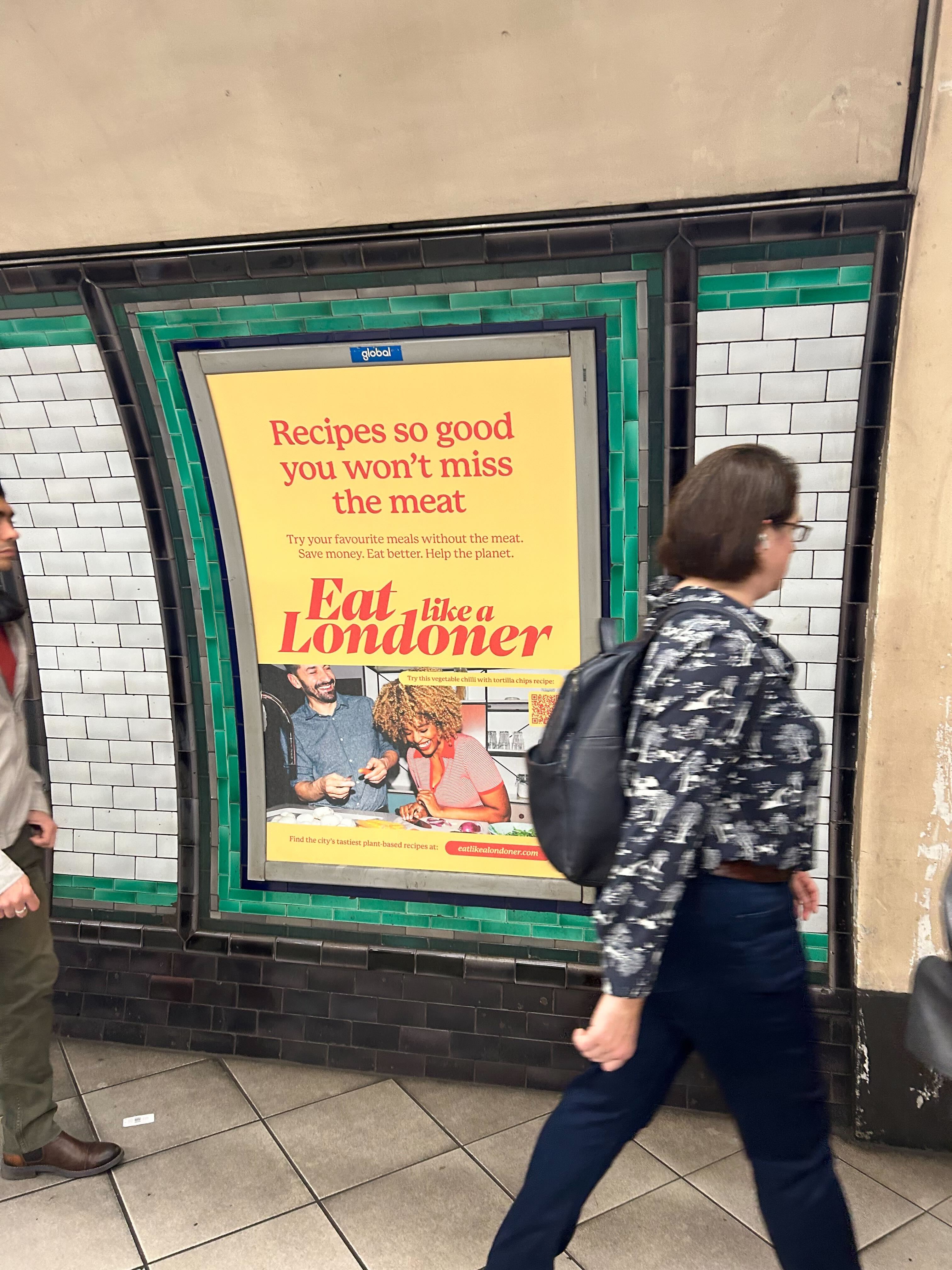
Public facing behavior change campaign
ReLondon is a partnership between the Mayor of London and London's 33 boroughs. The organization works to improve waste and resource management, and transform London into a leading low carbon circular economy. “We do research, offer business support to circular businesses, and support local authorities to help improve on topics like waste prevention and recycling,” says Moore. “The boroughs requested ReLondon to act upon the outcomes of the London's Food Footprint report and asked us to set up and run a consumer facing campaign focused on shifting to more plant-based diets and reducing household food waste.”
Moore’s team got to work. “We started by soliciting funding. The Mayor of London's office contributed funding as well as 27 out of the 33 boroughs. The Ellen MacArthur Foundation made a solid contribution and we were happy to welcome Google as a lead sponsor of the project. We kicked off with some consumer insights research in September 2022 and invited creative agencies to come up with ideas to turn this into an engaging low-budget citizen campaign. Obviously affecting behavior change was our main objective. In the end we came up with Eat Like A Londoner.”
The 6 top behaviors of the Eat Like A Londoner campaign is trying to persuade Londoners to take up:
Eating more plants:
1. Try being vegetarian or vegan till 6 PM
2. Try making your favorite dish without the meat
3. Be more adventurous with your takeout meals:
a. Experiment with different cultural foods that have lots of vegan options
b. Try the plant-based alternative
Wasting less food at home:
1. Have a leftovers day every week
2. Enjoy the parts of foods which others reject
3. Check your fridge and cupboards before you make a list or go shopping
From content creation to curation
Moore’s team has created numerous campaigns in the past, however this one took a different turn. “Generally speaking, when we do food campaigns, we create lots of creative content, ranging from recipes, to food waste hacks and tips. But creating content is expensive and it requires expertise from many different disciplines. With this campaign we've chosen to do things differently,” says Moore. “There are so many people already creating high-quality food content, why would we reinvent the wheel? There's probably over 1,000 plant-based food influencers, in London alone, producing and sharing beautiful content with their followers on Instagram, Facebook and TikTok all the time, with their accounts reaching anything between 10,000 and 500,000 followers. Why don't we act as a curator of content rather than a creator of content and see if there is content out there that fits our objectives that we can reshare? Instead of spending our money on content creation, we now spend our money on media, raising the profile of the campaign.”
Employer engagement
Google is the lead sponsor for the Eat Like A Londoner campaign. Moore explains: “In mid-October they launched the campaign on their London campuses as an employee engagement program. Google uses it in their London offices to help reinforce their own Food Program sustainability objectives, like reducing food waste and shifting diets to be more balanced and plant-forward. Our shared goals align perfectly.”
Spreading the word
Eat Like A Londoner is initially planned as a two year campaign. The first year was spent predominantly in doing research and insights work, creative development, planning, and pulling together a network of people. “We launched the campaign publicly with a big advertising push at the end of March 2023,” says Moore. “That’s when we launched our website and social media channels. In September, we had a second big advertising push. And there’ll be a third in March 2024.”
During the first two big media bursts, there were advertisements all across London. There was advertising in door-to-door newspapers and on physical sites around the city, as well as on multiple digital platforms. Moore states: “The goal is to drive people to the website and to our social media channels where we share lots of new content every week. Some of the influencers and content creators that we reshare content from, might not even be aware of the fact that we do it, although we always credit and tag them. As we don’t have any commercial interest, overall, everyone is delighted that we're sharing their content even more widely, driving new followers for them. When it's about a subject like food waste or plant-forward meals, I think creators are just happy to find like-minded souls who have shared objectives.”
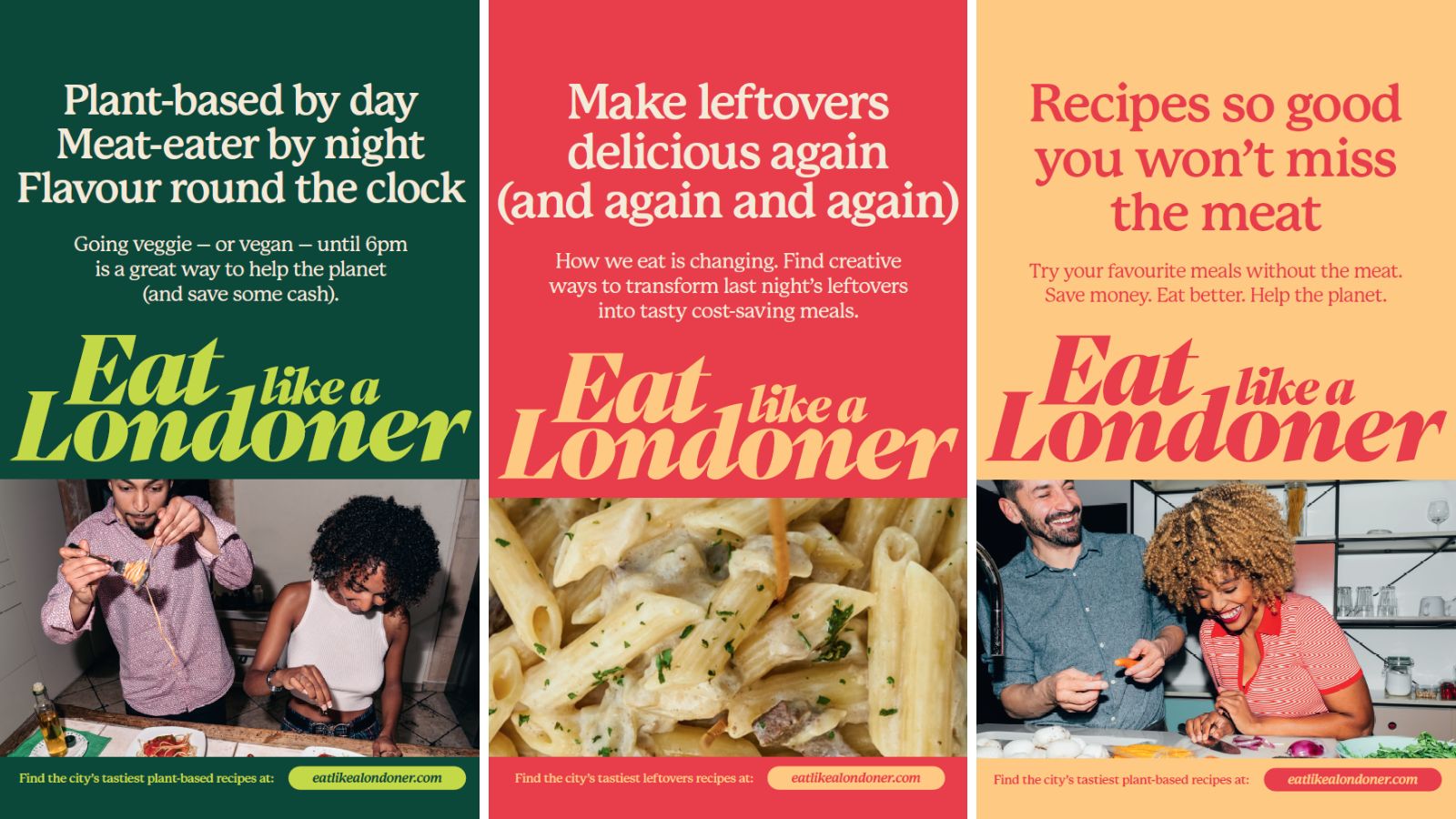
Make it fun, delicious and affordable
“With environmental campaigns of any kind, the risk is that people will find the content boring and self-righteous. At ReLondon, we’re careful to avoid that,” says Moore. “With this campaign, in particular the plant-based part, we've simply focused on delicious food. With the curation of photography and video content we’re just trying to find the yummiest, most delicious recipes. Our food waste tips and tricks are very cost-focused. We've really tried to keep them short, snappy, and super easy to fit into daily routines. We hardly talk about climate and planet.”
“We have a strong affordability message running through all of our content. Reducing household food waste and eating less meat, both can help you save money. At the moment with food costs going through the roof, the political inclination is to make sure that we're helping people in a cost of living crisis.”
An example to follow
This campaign could very well be duplicated in other cities or even other countries. “We'd love for it to be duplicated. But as ReLondon is legally not allowed to do anything outside of London unless it is funded by somebody else, pursuing that has not been at the top of the priority list. First, we are focused on finding funding and partners to continue the campaign into 2024.”
“We have been looking to engage supermarkets. Unfortunately, the inflation and cost of living crisis has not helped move those conversations along as fast as we would hope. There is research that shows that supermarkets are people’s trusted food place. We know that we would reach a lot more people, and they would hear the message much more clearly in a supermarket context because that's where they expect to be hearing about food-related content. There are so many options, for example in-store activations, messaging on receipts, social media, newsletter messages or through their loyalty card memberships. If we could get supermarkets to share some of our messages with their customers it would be very powerful.”
How to measure success
In April 2024, the project will be evaluated. “It will stop, unless we find new funding. I know that a lot of the boroughs would very much like it to continue. In terms of what success looks like, it is always tricky to evaluate the proper impact of behavior change campaigns,” says Moore. “We can't necessarily track behavior change. Of course, we have all the usual metrics from our website and social media channels. We know if people liked our content, we know who we reached and how many people engaged with our content. But whether or not they acted upon it, that remains the million dollar question.”
“Before the campaign started, we ran a 10-question survey with about 2,000 Londoners through YouGov - a big citizen survey research agency in the United Kingdom. It ran in early March before the first media push went live, asking people about their food habits at home, whether they have a leftovers day, how they store fruit and veg. We also asked them about their meat and dairy consumption. The plan is to rerun that survey next April to see if there's any progress against some of those scores. Hopefully, there will be.”
.jpg-28x28.jpg) Written by
Written by 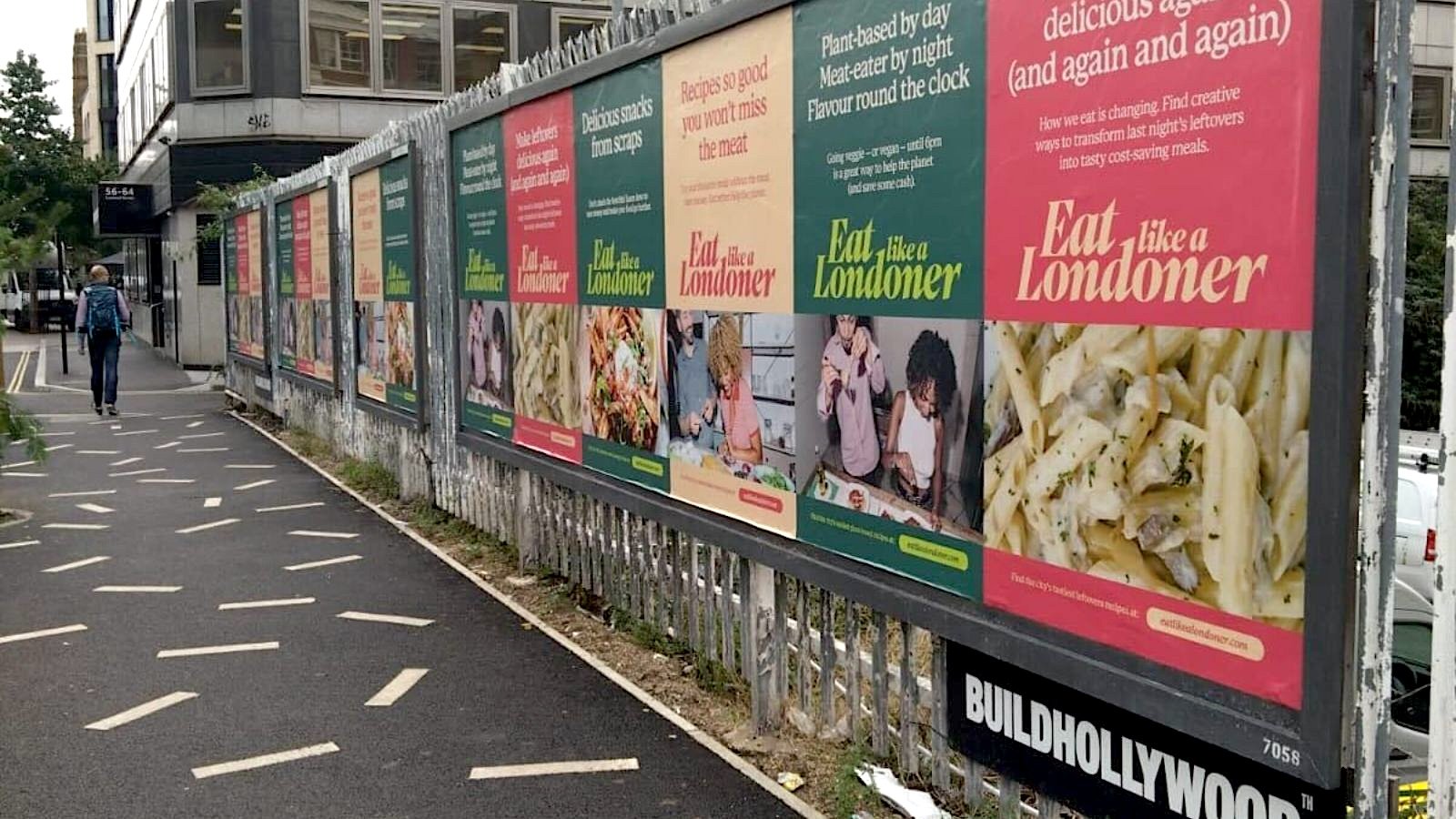
.jpg-300x300.jpg)
.jpg-50x50.jpg)













